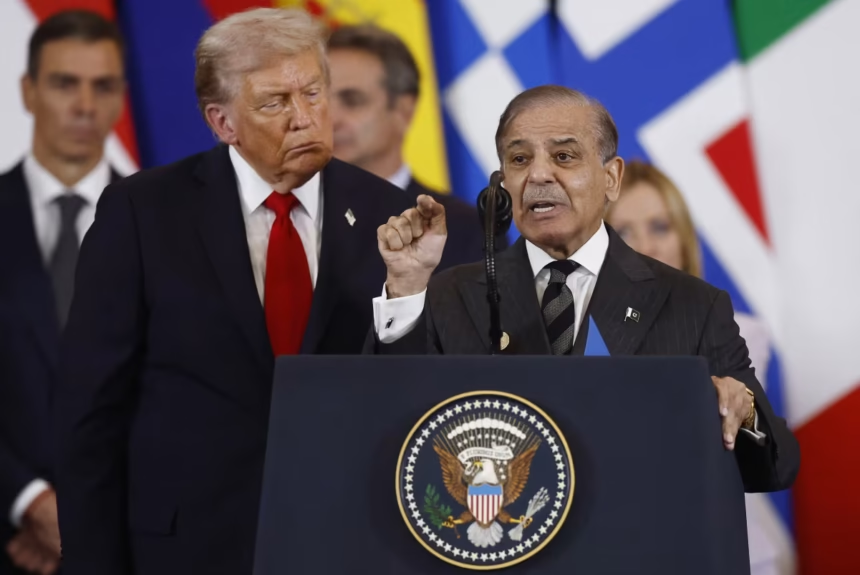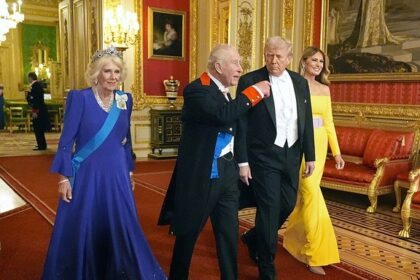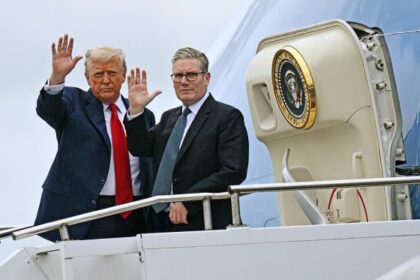Pakistan is making a calculated turn toward the United States, using its untapped wealth of rare-earth minerals and strategic diplomacy to position itself as a pivotal partner in Washington’s global supply-chain and geopolitical ambitions. This fresh outreach comes amid growing interest from American firms in critical minerals, and a U.S. administration under President Donald Trump that has prioritized reshoring key resources and deepening alliances beyond traditional partners.
A High-Profile Display in Washington
In a highly publicized visit to the U.S. capital, Pakistan’s Army Chief Asim Munir personally presented samples of rare-earth minerals and other critical mining assets to President Donald Trump. The ceremony was symbolically significant: rather than sending a trade minister, Pakistan dispatched its highest-ranking military official, delivering a message that resource diplomacy in Islamabad is now tied to national security and channeled through the corridors of power.
The presentation included elements designed to cater to the President’s taste for tangible, deal-oriented diplomacy: “Here are the minerals, behold the value, let’s make a partnership,” one Pakistani intelligence source said. For Islamabad, the optics were deliberate nudging the White House to see Pakistan not as a security client, but as a supplier of strategic resources and a geopolitical bridge.
Untapped Wealth Under Development
Pakistan claims to host vast deposits of rare-earth and critical-mineral reserves including elements vital to defense systems, clean energy, and advanced electronics. Among these are antimony, lithium, copper, and rare earths such as neodymium and praseodymium. American industry observers and other governments have flagged such elements as essential to reducing dependency on China’s dominant position in rare-earth supply chains.
U.S. interest is becoming concrete. Earlier this year, Pakistani officials said American firms were eyeing investment in their mining sector. A summation of this effort emerged when Islamabad announced that it signed a roughly $500 million memorandum of understanding with a U.S. company to explore mining for critical minerals. At the same time, Pakistan is seeking to diversify its export markets, avoid punitive tariffs, and improve its macroeconomic position through new investment.
Diplomatic Re-Anchoring
This rare‐earth-based outreach comes amid a broader recalibration of U.S.–Pakistan relations. With Washington seeking new strategic partners in Asia and the Indian Ocean at a time of rising competition with China, Pakistan is striving to reposition itself. The rare‐earth pitch is part of that strategy—alongside crypto ambitions, energy deals, and counter-terrorism cooperation.
The personal engagement with President Donald Trump is noteworthy. It signals that Pakistan views the Trump presidency as a potential pivot point; his administration’s “America First” posture is being reframed by Islamabad not as a threat, but as a transactional window: “We have the minerals you need. Let’s do business.”
Risks, Realities and Skepticism
Despite the bold display, observers offer caution. Critics note that while Pakistan’s mineral potential is significant, years of under‐investment, infrastructural challenges, political instability, and security issues especially in provinces like Balochistan and Khyber Pakhtunkhwa make rapid exploitation difficult. One Pakistani geoscientist argued that published estimates of petroleum reserves and other resources have been overstated, raising questions about whether the minerals on display translate into near‐term supply chains.
Moreover, the use of military leadership for a commercial negotiation has attracted domestic criticism in Pakistan. Some lawmakers called the army chief’s role “mockingly salesman-like,” questioning the optics and propriety of a senior military officer presenting mineral samples in Washington. The blending of economic diplomacy and security forces sparked comments about blurred lines between state roles.
Strategic Implications for the U.S.
For the United States, the potential rewards are clear: access to alternative sources of critical minerals, diversification of supply chains away from China, and enhanced influence in South Asia. But it must weigh these gains against uncertainties—such as Pakistan’s political and security environment, the authenticity of reserve claims, and the consistency of long‐term governance and regulatory frameworks.
President Donald Trump’s embrace of deal‐making, and his interest in reshoring industry and securing American competitiveness, align naturally with Pakistan’s pitch. The decision by Washington to engage seriously could deepen bilateral ties and reshape regional economic links. But it also places the White House in the delicate position of balancing traditional alliances, regional rivalries (especially with India), and global supply-chain integrity.
What Comes Next
-
Islamabad plans to send a high‐level delegation to Washington with mining and trade officials to follow up on the mineral pitch.
-
American mineral and technology firms are expected to conduct risk/return assessments of investment opportunities in Pakistan.
-
Domestic Pakistani scrutiny will continue of the role of the military in economic diplomacy and of whether expected mining revenues will accrue equitably and securely.
-
U.S. policymakers in trade, defense, and treasury will evaluate whether Pakistan’s offers and the related deals align with national-security imperatives.
-
Regional actors, including India and China, will be watching closely. A deep U.S.–Pakistan mineral partnership could alter trade patterns and strategic loyalties in South Asia.
In short, Pakistan’s rare-earth diplomacy represents both ambition and opportunity. Whether the gambit pays off depends on implementation, governance, and whether Washington views Pakistan’s mineral pitch as credible and strategic or as another protracted gambit in a region of competing interests.











